Filter by
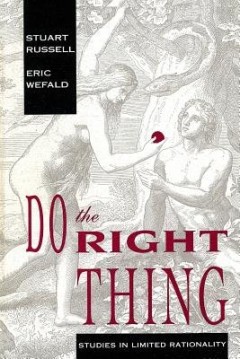
Do the Right Thing: Studies in Limited Rationality
The authors argue that a new theoretical foundation for artificial intelligence can be constructed in which rationality is a property of "programs" within a finite architecture, and their behavior over time in the task environment, rather than a property of individual decisions.Like Mooki, the hero of Spike Lee's film "Do the Right Thing," artificially intelligent systems have a hard time knowi…
- Edition
- -
- ISBN/ISSN
- 9780262282772
- Collation
- 1 online resource (xx, 200 pages) :illustrations.
- Series Title
- -
- Call Number
- -
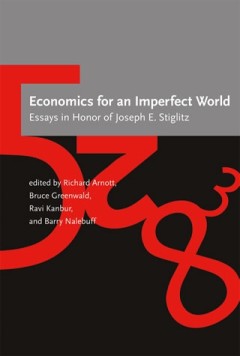
Economics for an imperfect world : Essays in honor of Joseph E. Stiglitz
Essays by leading economic thinkers reflecting the influence of 2001 Nobel Prize winner Joseph E. Stiglitz. Throughout Joseph Stiglitz's long and distinguished career in economics, the focus has been on the real world, with all of its imperfections. His 2001 Nobel Prize recognized his pioneering research in imperfect information; his work in other areas, including macroeconomics, public economi…
- Edition
- -
- ISBN/ISSN
- 9780262267342
- Collation
- 1 online resource (viii, 702 pages) :illustrations
- Series Title
- -
- Call Number
- -
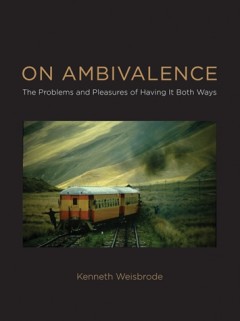
On ambivalence :the problems and pleasures of having it both ways
A concise guide to ambivalence, from Adam and Eve (to eat the apple or not?) to Hamlet (to be or not?) to globalization (e pluribus unum or not?).Why is it so hard to make up our minds? Adam and Eve set the template: Do we or don't we eat the apple? They chose, half-heartedly, and nothing was ever the same again. With this book, Kenneth Weisbrode offers a crisp, literate, and provocative introd…
- Edition
- -
- ISBN/ISSN
- 9780262301824
- Collation
- 1 online resource (81 pages)
- Series Title
- -
- Call Number
- -
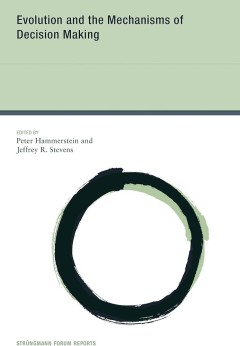
Evolution and the Mechanisms of Decision Making
"Eleventh Ernst Str?ungmann Forum held June 19-24, 2011, Frankfurt am Main."How do we make decisions? Conventional decision theory tells us only which behavioral choices we ought to make if we follow certain axioms. In real life, however, our choices are governed by cognitive mechanisms shaped over evolutionary time through the process of natural selection. Evolution has created strong biases i…
- Edition
- -
- ISBN/ISSN
- 0262306026
- Collation
- 1 online resource (xi, 434 pages) :illustrations (some color).
- Series Title
- -
- Call Number
- -
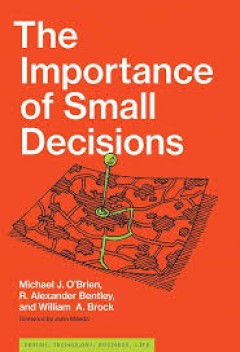
The importance of small decisions :how culture evolves
How people make decisions in an era of too much information and fake news. Humans originally evolved in a world of few choices. Prehistoric, preindustrial, and predigital eras required fewer decisions than today's all-access, always-on world of too much information. Economists have largely discarded the idea that agents act rationally and the market follows suit. It seems that no matter how sma…
- Edition
- -
- ISBN/ISSN
- 9780262352536
- Collation
- 1 online resource (160 pages) :illustrations.
- Series Title
- -
- Call Number
- -
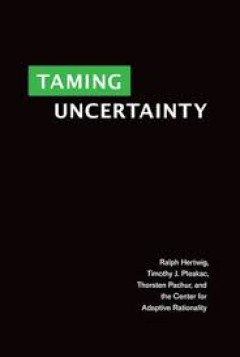
Taming uncertainty
An examination of the cognitive tools that the mind uses to grapple with uncertainty in the real world.OCLC-licensed vendor bibliographic record.
- Edition
- -
- ISBN/ISSN
- 026235313X
- Collation
- 1 online resource (488 pages).
- Series Title
- -
- Call Number
- -
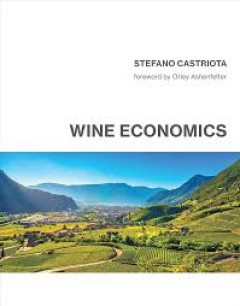
Wine economics
"An interdisciplinary exploration of the economics of wine, drawing on a variety of academic literatures"--OCLC-licensed vendor bibliographic record.
- Edition
- -
- ISBN/ISSN
- 0262361027
- Collation
- 1 online resource.
- Series Title
- -
- Call Number
- -
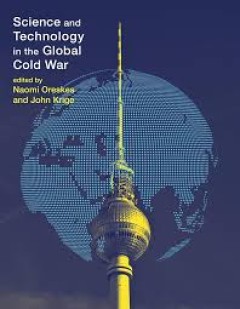
Science and Technology in the Global Cold War
Investigations of how the global Cold War shaped national scientific and technological practices in fields from biomedicine to rocket science.OCLC-licensed vendor bibliographic record.
- Edition
- -
- ISBN/ISSN
- 9780262326100
- Collation
- 1 online resource (viii, 456 pages) :illustrations.
- Series Title
- -
- Call Number
- -
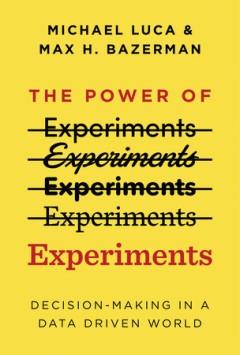
The power of experiments :decision making in a data-driven world
How organizations--including Google, StubHub, Airbnb, and Facebook--learn from experiments in a data-driven world.OCLC-licensed vendor bibliographic record.
- Edition
- -
- ISBN/ISSN
- 9780262358255
- Collation
- 1 online resource (xiv, 211 pages)
- Series Title
- -
- Call Number
- -

Better than conscious? : DECISION MAKING, the HUMAN MIND, and IMPLICATIONS FO…
Experts discuss the implications of the ways humans reach decisions through the conscious and subconscious processing of information. Conscious control enables human decision makers to override routines, to exercise willpower, to find innovative solutions, to learn by instruction, to decide collectively, and to justify their choices. These and many more advantages, however, come at a price: the…
- Edition
- -
- ISBN/ISSN
- -
- Collation
- 1 online resource (xiv, 449 pages) : illustrations (some color).
- Series Title
- -
- Call Number
- -
 Computer Science, Information & General Works
Computer Science, Information & General Works  Philosophy & Psychology
Philosophy & Psychology  Religion
Religion  Social Sciences
Social Sciences  Language
Language  Pure Science
Pure Science  Applied Sciences
Applied Sciences  Art & Recreation
Art & Recreation  Literature
Literature  History & Geography
History & Geography